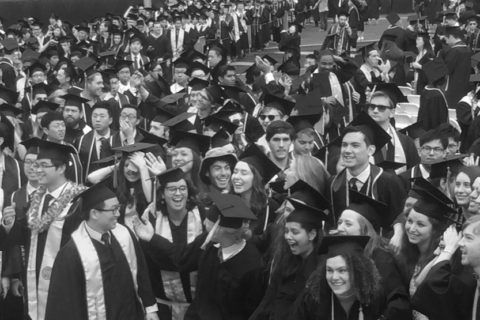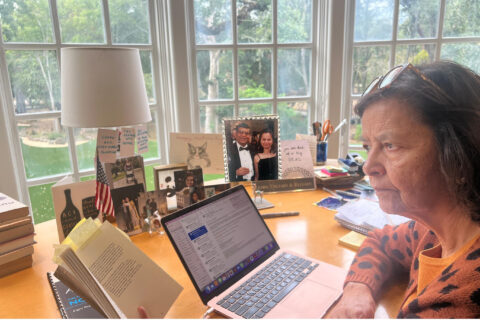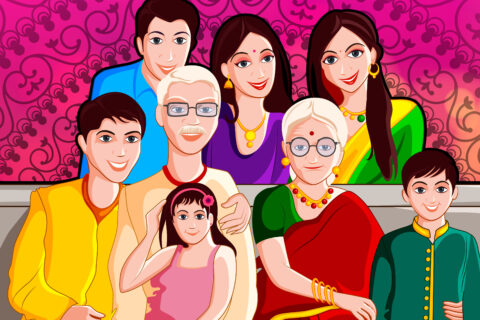
The architects behind the wonders of ChatGPT and its myriad incarnations, including Bing, Bard, Pi, and Perplexity are gaining as much prominence as the powerful tool they created, giving us pre-trained Large Language Models (LLMs) programmed to answer all our questions, eloquently, and completely — but not yet perfectly.
These luminaries have also become ardent advocates of the perils of AI, by issuing warnings through popular podcasts, and interviews and by promoting a cautionary book titled, ’The Coming Wave’. They are just a handful of them, singing to the same tune; how intelligent a tool they have created, how it will change the world, the technology that can exponentially increase human productivity, and also how it can wipe out the human race — like the atomic bomb.
Names that light up the AI scene are the author Mustafa Suleyman, ex-CEO of DeepMind, Geoffrey Hinton, known as “the godfather of AI,” and then Sam Altman, Ilya Sutskever, and other pivotal figures embroiled in the recent saga of Openai. Their background varied from philosophy, psychology, neuroscience, to Computer Science, and they were globetrotters from Israel, the US, Canada, and the UK, funded by Silicon Valley’s BigTechs firms.
Why is the diversity of disciplines, cultural backgrounds, and serendipity of association of importance, in the unfolding narrative of AI?
The diverse origins and perhaps clashing viewpoints converged, birthing a powerful tool. Yet, in doing so, they seem to have become inseparably intertwined, singing in unison about the perils of their creation — an assertion that warrants scrutiny.
This diversity, I argue, fueled their creation, but their current synchronized alarm bells are what I question. Their paths had crossed in their prior lives. No wonder they developed models leveraging each other’s inventions and their world view is unsurprisingly similar.
Firstly, I assert that learning language is not end all. Language has only been one tool that gained edge for humans, in the evolutionary war.
They claim ChatGPT understands and comprehends, like humans, not just mimics. I would answer that this is still pattern recognition, not wisdom. Yes, it’ll likely surpass us in ten years, but humans learn by asking questions, and not by answering — we constantly question even ourselves. We also learn from non-verbal cues; our nuanced emotions, facial expressions, the tone of the voice, eye contact or lack thereof, and twitch of the lips — unlike frozen expressions of robotic avatars. The logarithmic software is far less effective in recognizing facial expressions than humans are.
A big part of human learning comes from doing, called experience. Human experiences shape the way we think. Information alone does not lead to wisdom, and knowledge is not wisdom, even though without knowledge and experience one does not achieve wisdom.
Plus human brains are capable of evoking focus. Intense focus sharpens our thinking by knowing what to ignore and what holds significance. Can machines do that? Granted machines do not get distracted.
Also, AI is designed as a tool to help humans. If it cannot understand its master — the human — how likely is it that it will surpass human intelligence?
Further, the creators of AI, proudly trumpet their altruism, emphasizing their decision to open-source their code for free download for integration into AI-powered personal websites, or even commercial use. In essence, they offered a treasure that demanded billions of dollars in investments, free of charge to the world. OpenAI’s CEO, Sam Altman, stands apart. He holds no stock in Openai, which operates independently under the auspices of Microsoft. But each one of them has already amassed tens of millions of dollars, including Altman.
The inventors of AI could also be motivated by their desire to restrict competition — the game played in business and capitalism. Advocating ‘regulating AI’ as they do, tends to only help their established entities. The less competition there is, the better the creators’ chances of sustained success.
I contend that early reins on groundbreaking technology may not necessarily serve humanity’s best interest.
(Reflecting and penning this article was prompted by a friend, who was alarmed by The Coming Wave)








Ashok Ahuja
Great article, Vinita. Thanks for sharing.
Regarding:
"Also, AI is designed as a tool to help humans. If it cannot understand its master — the human — how likely is it that it will surpass human intelligence?"
It will be a long time (if ever) before humans truly understand how humans think. If this is true, there is little to fear from AI surpassing human intelligence anytime soon.
Vijay Gupta
Some of the leading-edge applications of AI are in the areas of national defense and foreign intelligence gathering. The top concern of the US is not some unintended consequences of AI, but that it should not fall behind other countries in leveraging AI in such strategic areas. Therefore, just as the US tried to limit the global proliferation of nuclear weapons with NPT (nuclear non-proliferation treaty) and FMCT (Fissile Material Cut-off Treaty), it is now trying to do something similar with the AI.
The pace of progress in AI research and development is currently limited by the performance of hardware platforms rather than by software. Therefore, the US is trying to maintain its lead by restricting export of high-end AI chips, processors, and systems.
Bharati Ahuja
Totally agree –
‘that this is still pattern recognition, not wisdom… humans learn by asking questions, and not by answering.’
Well said!
SREEDHAR MENON
I am on a beginners learning curve on AI and that is why I found this helpful. AI cannot replace human brain, I think! Surely AI is a tool that can be used by Humans!
Valerie Baldwin
Your comments are very interesting. I have not gotten excited about AI other than curiosity because it seemed to me just another invention in a long line of such since the stone age. AI at this point cannot reason or, as you say, possess wisdom. Just regurgitates what it is fed, albeit organized. I will read The Coming Wave to see what Suleyman has to say that upset your friend.